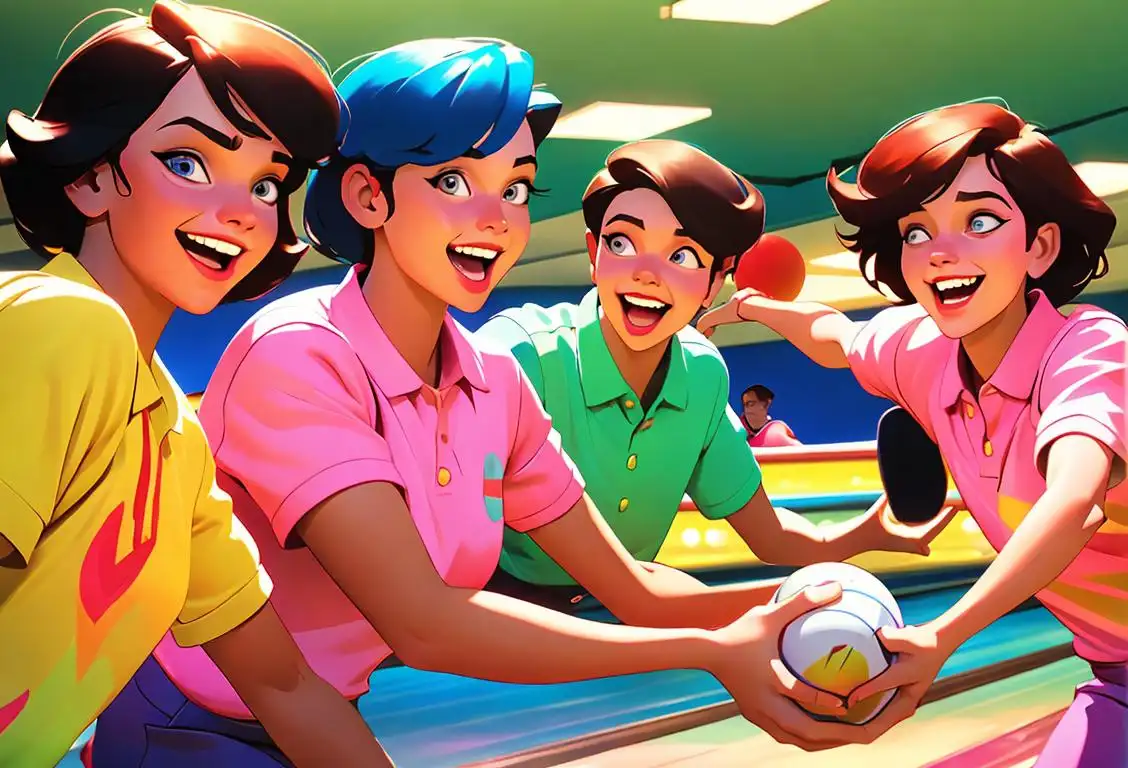National Bowling Day

Warm up those arm muscles because we're rolling straight into National Bowling Day! This day is all about striking (pun intended) the perfect balance between having fun and honing your incredibly specific, yet completely valid, hobby of knocking down pins with a heavy ball.
When is Bowling Day?
It's national bowling day on the 8th August.
History of National Bowling Day
Before the internet was a twinkle in someone's eye and 5-pin bowling was still a thing (we're not judging, Canadian friends!), folks were celebrating the universally loved game of bowling. National Bowling Day itself—much like the elusive 7-10 split—seems to have just popped up. We're not entirely sure where or when it started, but with over 4997 mentions online, it's clear this day has struck a chord with people.
Highest Mentions on August 8th, 2020
And ooohlala, it seems like the day ignited a veritable explosion of online mentions on August 8, 2020. Perhaps a bowling enthusiast decided this was a prime opportunity to show off their newly polished ball on social media. Or maybe, just maybe, someone landed an epic Turkey (that's three strikes in a row, for the uninitiated!) and the world simply had to know.
Why We Celebrate Bowling
We all know the thrill of seeing those pins fly, the pathetic sigh that comes with a gutter ball, and the joyous camaraderie of enjoying a game with friends, family, or friendly competitors. Bowling has been a social activity for centuries, enjoyed by kings and queens, commoners (hello, Flintstones!), and even U.S. Presidents. It's a game of skill, luck, and those special shoes that make every step a risk. So how about firing up the ball polisher and heading to your local alley in honor of National Bowling Day? Because let's be real, who doesn't need another reason to consume nachos and soda for dinner?
History behind the term 'Bowling'
5200 BCE
Ancient Beginnings
The history of bowling dates back to around 5200 BCE when evidence of a primitive form of the game was found in ancient Egypt. Archaeologists discovered stone balls and pins in a child's grave, suggesting that some sort of bowling-like game was played during that time.
1366
The First Bowling Alley
The first known mention of bowling in English literature dates back to the year 1366. King Edward III is said to have outlawed bowling in an attempt to keep soldiers focused on archery practice. Despite the ban, bowling continued to gain popularity, and the first indoor bowling alley, known as the 'King's Game,' was built in Southampton, England in the same year.
1840
Bowling Comes to America
In 1840, German immigrants brought the game of 'kegel,' a form of bowling, to America. The game gained popularity among communities as a social activity and was played in makeshift alleys. As the sport evolved, regulations and standardized rules were established to ensure fair play and consistency.
1895
Formation of the American Bowling Congress
Recognizing the need for a governing body to oversee the sport, the American Bowling Congress (ABC) was formed in 1895. The ABC worked towards creating uniform regulations and organizing national bowling tournaments. This marked an important step in the professionalization and standardization of the game.
1951
Introduction of Automatic Pinsetters
In 1951, the introduction of automatic pinsetters revolutionized the game of bowling. Before the invention of pinsetters, pin boys manually reset and cleared pins after each bowler's turn. With the introduction of automatic pinsetters, the game became more efficient, allowing for faster-paced play and increased popularity.
1960s
The Rise of Bowling Alleys
The 1960s marked the golden age of bowling alleys in America. The sport saw a surge in popularity, and bowling centers began popping up across the country. These centers offered not only bowling lanes but also bars, arcades, and other entertainment options, making them popular social gathering places for people of all ages.
1979
Professional Bowling Association (PBA)
In 1979, the Professional Bowling Association (PBA) was formed to promote and organize professional bowling competitions. The PBA brought the sport to a new level by showcasing talented players and creating a platform for professional bowling to thrive. Today, the PBA is recognized as the premier professional bowling organization.
21st Century
Bowling's Continued Popularity
Bowling remains a popular leisure activity in the 21st century, attracting millions of participants worldwide. It has also become a competitive sport with professional tournaments, televised events, and leagues. The game continues to evolve with advancements in technology, ensuring its place as a beloved pastime for generations to come.
Did you know?
Did you know that bowling is over 5,000 years old? The earliest known forms of the activity date back to Ancient Egypt!Tagged
awareness food fun loved ones sportsFirst identified
20th July 2015Most mentioned on
8th August 2020Total mentions
4997Other days
One Day
Action Day
Opposite Day
Happiness Day
Suicide Prevention Month Day
Bowling Day
Foundation Day
Drink A Beer Day
Trivia Day
Awareness Day








